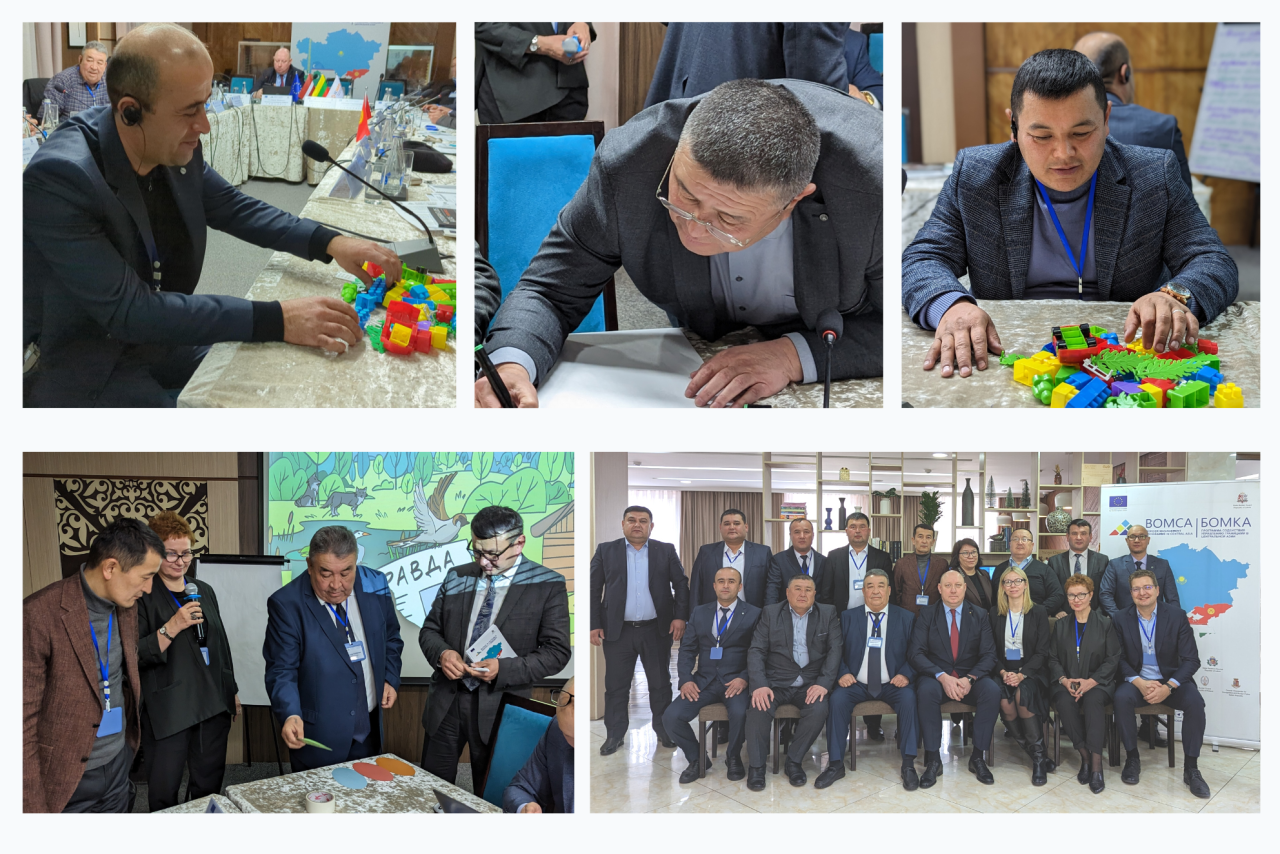The Border Management Programme in Central Asia (BOMCA 10) recently organised an interactive workshop on effective communication tools for the representatives of local authorities in the border areas of Kyrgyzstan and Uzbekistan.
The main purpose of the workshop was to develop practical communication skills and tools among the target group, that would consequently contribute to a better provision of information to the Kyrgyz and Uzbek border areas’ population.
The 5-day workshop was held in two cites – in Osh, Kyrgyzstan (30 – 31 January) and Andijan, Uzbekistan (2 – 3 February). On 1 February participants visited the border crossing point and border area between two countries. This format allowed the local authorities’ representatives from Kyrgyzstan and Uzbekistan to familiarize themselves with each other’s’ local contexts on the ground, as well as contributing to the development of a better mutual understanding of the challenges and opportunities faced by each side.
In particular, the experts introduced an effective communication framework, communication methods and tools relevant for the cross-border context, allowing the beneficiaries to improve their overall communication practices.
Furthermore, the workshop provided yet another platform for dialogue among the Kyrgyz and Uzbek local authorities that follows an historic agreement on the state border delimitation on 27 January 2023 and requires enhanced cooperation and communication from the two sides.
It is worth noting that as a result of the workshop, the experts will develop a practical booklet on effective communication in the cross-border context for local authorities that will allow transferal of the acquired knowledge and tools.
The workshop was held within the BOMCA 10 Component 4, “Improvement of Cross-Border Cooperation”, aiming to contribute to the creation of better living conditions in border areas through local economic development, with a focus on human rights, gender equality and vulnerable groups.
This is also part of the Programme’s overall support to government agencies in boosting their communication activities.

